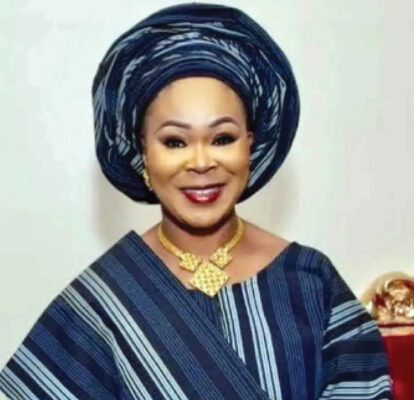A minister’s quandary
When I watched Uju Kennedy-Ohanenye, then minister of women’s affairs, haranguing an alleged illegal gathering before shutting it down, I guessed that her career as a minister was headed for the precipice. This happened in early August when the minister was reportedly piqued by some disagreement with the sponsors of the programme, she decided to […]

uju kennedy ohanenye 414×400
When I watched Uju Kennedy-Ohanenye, then minister of women’s affairs, haranguing an alleged illegal gathering before shutting it down, I guessed that her career as a minister was headed for the precipice. This happened in early August when the minister was reportedly piqued by some disagreement with the sponsors of the programme, she decided to embark on a roadshow of storming the event centre with security men to announce to the bewildered attendees, its cancellation in the full glare of the media. Anyone who watched the spectacle would agree with me that it was a needless display of power.
Even before this extravagant show, Minister Uju had been one of the most visible members of President Bola Tinubu’s cabinet always in the press, albeit for the wrong reasons. She first started by causing diplomatic faux pas when she threatened to sue the United Nations (UN) over the issue of donor funds. She accused the UN of sourcing funds from donors on behalf of Nigeria and mismanaging it. The whole matter turned out to be a rumour without anything substantial to back up such a serious allegation.
In any case, it was not the place of the minister to make such pronouncements. In another instance, she accused the World Bank staff of appropriating 40% of Nigeria’s loans as consultation fees and dishing out another 5% to government officials who signed for the loans. With nothing to back this up, she had to eat her words.
She had a no-love-lost relationship with the Committee of Women’s Affairs of the House of Representatives. Meetings between her and the committee always ended up in a shouting match with allegations and counter-allegations flying about. At a time, the minister even filed a lawsuit against the Chairperson House Committee on Women Affairs, Kafilat Ogbara for libel and defamation. The relationship between the Ministry of Women’s Affairs and the House Committee on Women’s Affairs was that bad.
- Allegations against Nigeria: More knocks for Niger military ruler
- Nigeria’s security crisis: Why state police may be the answer
The minister also dabbled into local matters that exposed her shallow understanding of traditions and cultures in a federal system such as Nigeria. When the Speaker Niger State House of Assembly set about a mass marriage of 100 orphan girls from his constituency, minister Uju filed a well-publicized court injunction to stop it. When the minister was more enlightened on the matter, she withdrew the injunction and even volunteered to partner with him to settle the girls and empower them.
There were more such indiscretions and I suppose shutting down the programme at the event centre was the last straw. That event uncovered the minister as a loner in the ministry failing to carry along her ministry in the tasks she was assigned to perform. She was at war with the National Assembly. She had strained ties with world bodies, such as the UN bodies and the World Bank donating funds for women-related programmes. It became obvious that her combative approach would do no good to the government. When the opportunity for a cabinet reshuffle presented itself, the president mercifully decided to put the minister out to pasture.
I was however taken aback by Uju appearing on a Channels TV programme and not showing any contrition over her actions in the short time she was a minister. In the interview, she admitted that she was sacked but remained adamant that she was right all along. She said “I have no regrets in the way I did my job. I don’t have any regrets. I don’t think I could have done it better. That was the highest way I could have done it. That issue of being diplomatic is what I don’t understand.”
I am not surprised that Uju did not show any remorse for her failure to deliver on her mission. It is a quandary that many ministers get enmeshed into whenever they land in their postings. As soon as they are sworn in, those destined to fail rush to their ministries gra-gra-gra, passionately wanting to perform but with little patience to tarry awhile and understand their environment.
Many ministers come with a retinue of aides who know next to nothing about the mandate of the ministry and thus could be of little or no help to the minister. Many of the aides have never served in any capacity in the public service. Instead of becoming a bridge between the minister and the ministry officials the aides then become a rock separating them. Sadly, both the minister and the aides end up in a blind alley. It is the classic case of the blind leading the blind.
When this pernicious battle rages on between the minister and key stakeholders it is the country that suffers the consequences. It is best whenever it rears its head, it is quickly nipped in the bud. One would be bold to suggest that oversight on the ministers by whomsoever between the Chief of Staff to the President and the Secretary to the Government of the Federation be intensified to avoid this untidy occurrence.
